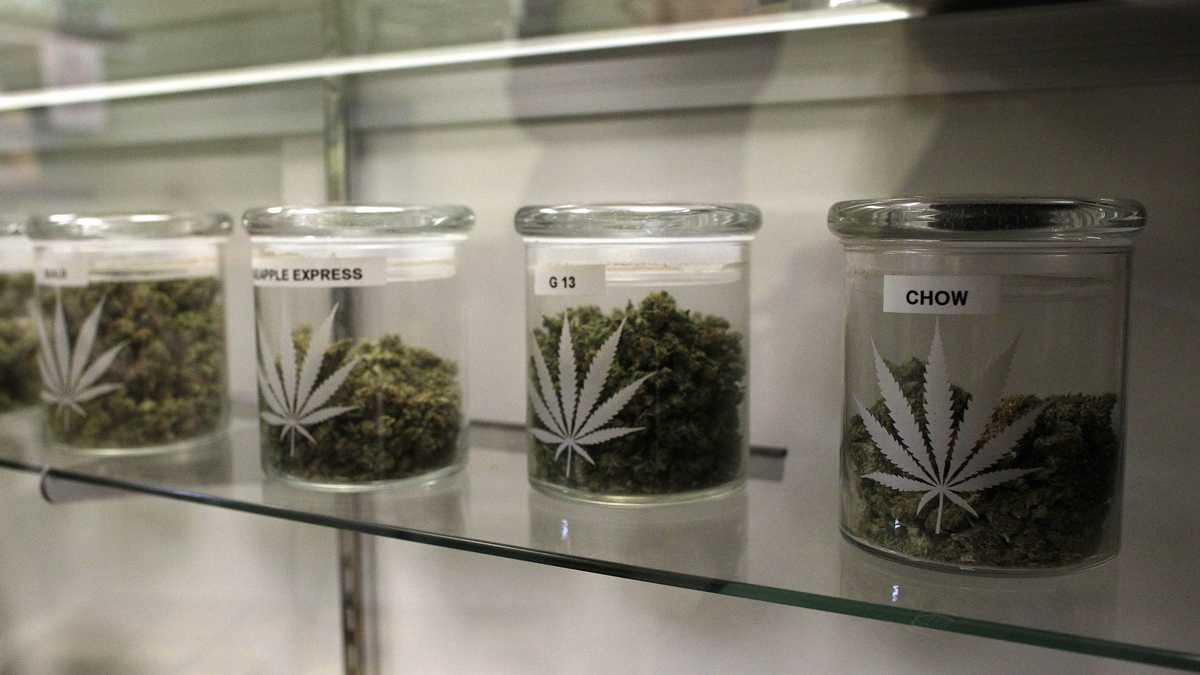Pa. legalizes medical marijuana, but program rollout could take years
Listen
(Brennan Linsley/AP Photo)
Gov. Tom Wolf has signed a law making Pennsylvania the 24th state to legalize medical marijuana. Now comes the heavy lifting for regulators, who have to build out the nitty-gritty of a statewide program that could take as long as two years to launch.
The Department of Health will have to create an application and licensing system for up to 25 marijuana growers across the state, along with up to 150 different store-front dispensaries. Doctors are required to attend a four-hour state-approved training course before they can recommend pot, and patients will need a way to apply for ID cards.
Becky Dansky with the Marijuana Policy Project, a national advocacy group, said there are a lot of details for the state to work through, but it helps having Wolf on board.
“The key at this point is that there is a governor and administration who are supportive,” said Dansky. “In New Jersey, it took some dispensaries five or six years to open their doors after the law was signed, largely because the governor opposed the program, and put up as many obstacles as possible to implementation.”
Another key difference between the approaches of Pennsylvania and New Jersey is that the commonwealth is opening up medical marijuana to a much broader list of conditions, including those with chronic pain, PTSD, cancer and autism. That potentially large group of patients could help keep the process rolling along.
“Market forces should support it happening as fast and as best as possible,” says Steven Schain, a Philadelphia lawyer who works with companies in the medical marijuana industry.
Still, he said, the ins and outs of the bill make it hard to predict just how smoothly the rollout may go.
“The interesting thing about the legalized cannabis world is the past is no predictor of the future.”
Summary of Pennsylvania’s Medical Marijuana Act
Qualifying Conditions: Pennsylvania physicians can recommend medical marijuana for patients diagnosed with one or more of 17 conditions, including cancer, Crohn’s disease, post-traumatic stress disorder, and autism.
Growers and Dispensaries: The state will approve up to 25 different permits for growing and processing marijuana. Up to 50 different dispensary applicants will be issued permits to sell marijuana, with each allowed to operate up to three locations.
Smokeless: Leaf cannabis will not be permitted for sale under the initial plan. Marijuana will be available in pill, oil, ointment and liquid form, along with vaporization. Edibles are also prohibited, though users will be able to mix a product into food or beverages.
Physicians: Pennsylvania physicians will need to register and complete a four-hour course on medical marijuana use before they can recommend it to patients.
ID card: Patients with recommendations from their physician will need to apply for a medical marijuana ID card, and will be assessed a $50 fee.
Taxes: Licenses for growers will cost $200,000, along with an initial fee of $10,000. Dispensaries will pay $30,000 for licenses, along with a $5,000 application fee. A 5 percent sales tax will apply to the transaction between growers and dispensaries. Users will not pay a sales tax on their purchase.
Timing: The law signed by Wolf goes into effect on May 17. It could take up to two years before the first dispensaries open.
WHYY is your source for fact-based, in-depth journalism and information. As a nonprofit organization, we rely on financial support from readers like you. Please give today.

